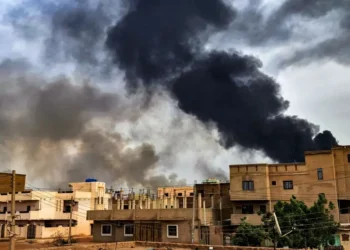A crucial meeting is set to unfold this week as the top US military officer engages with his African counterparts amidst a significant realignment of US military presence in West Africa.
The withdrawal of American troops from bases in Niger and Chad, and the potential redeployment to other nations, are expected to dominate the discussions at the Chiefs of Defense conference.
General CQ Brown, the Chairman of the Joint Chiefs of Staff, arrived in Botswana on Monday, June 24 against a backdrop of increasing uncertainty in Africa.
A series of military coups in Mali, Burkina Faso, and Niger has led to a reevaluation of alliances, with these nations pivoting away from the US and toward Russian-backed mercenaries for security assistance.
Brown highlighted the implications of withdrawing approximately 1,000 troops from Niger, including personnel from a pivotal counterterrorism and drone base.
He emphasized that while the US is stepping back from Niger, other West African countries are expressing interest in deeper cooperation with American forces, potentially allowing for an expanded US presence in the region.
“This conference offers an invaluable opportunity to engage with my African counterparts and understand their objectives and concerns.
“There are countries where we already have a footprint or established relationships. Our goal is to build on these relationships, which could allow us to reposition some of our capabilities previously stationed in Niger.”
General CQ Brown
The need for dialogue with these nations to determine the appropriate type and size of US military presence is paramount, according to Brown.
“That’s why this conference is crucial.”
Brown, along with other defense officials, views the conference as a platform to demonstrate the US’s willingness to listen and adapt to local solutions.
A senior defense official, speaking anonymously, emphasized that the US must align with the solutions identified by African leaders rather than imposing Western ideals.
The meeting in Botswana is seen as an essential step in nurturing military relationships across the continent, especially in light of the recent troop reductions in the Sahel region.
These reductions have sparked concerns about the capacity to counter the escalating violence perpetrated by extremist groups, including factions affiliated with the Islamic State and al-Qaida.
The US is particularly worried about the potential spread of extremist activities into coastal West Africa, a senior defense official noted.
Washington’s designation of the military takeover in Niger as a coup in October activated US laws that restrict military support and aid.
This decision has profound implications, particularly the abandonment of the critical drone base in Agadez used for counterterrorism operations in the Sahel.

Gradual Withdrawal Of US Troops
The withdrawal of US forces and equipment from Niger is currently 30% complete and is expected to be finalized by mid-September, according to a senior defense official.
The withdrawal process is fluid, with troops departing as their weapons systems and equipment are removed. Presently, around 600 troops remain in Niger.
In a related development, Chad recently ordered the US to vacate the Adji Kossei Air Base near N’Djamena. This decision led to the relocation of about 75 US Army special forces to Europe, leaving approximately 20 troops, alongside Marine security forces at the US Embassy, in the country.
Despite the current troop reductions in Chad being described as temporary, there is potential for reassessment now that the presidential election in Chad has concluded.
Brown indicated that the US would collaborate with embassy leadership in Chad to evaluate future American presence.
Some African nations have voiced frustration with what they perceive as the US imposing issues like democracy and human rights, which they view as hypocritical given Washington’s ties to certain autocratic leaders.
In contrast, Russia’s approach of providing security assistance without political interference makes it an attractive partner for military juntas in Mali, Niger, and Burkina Faso.
As such, as General Brown and his counterparts convene, the outcomes of their discussions will be pivotal in shaping the future of US military strategy and partnerships in West Africa.





















